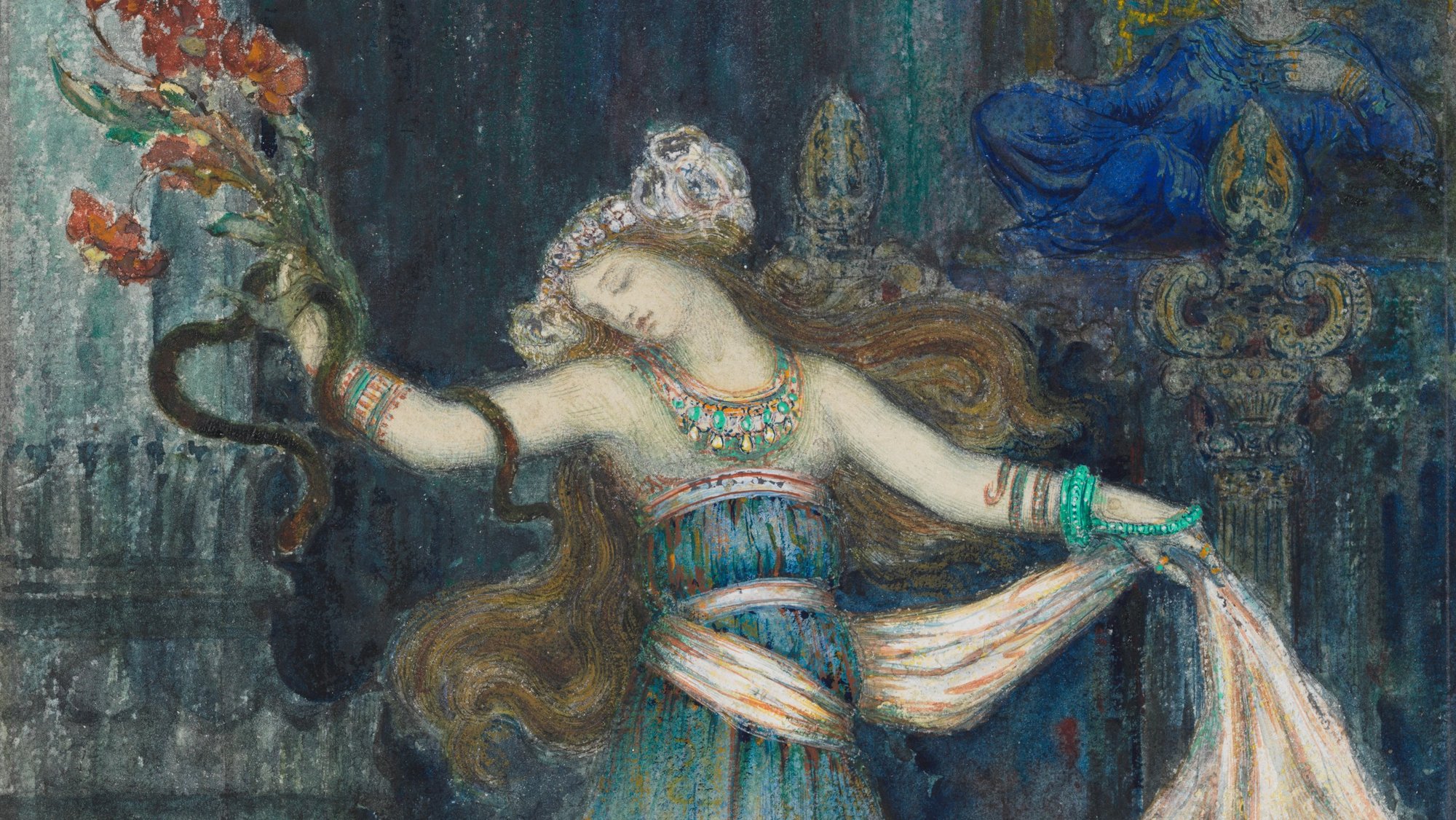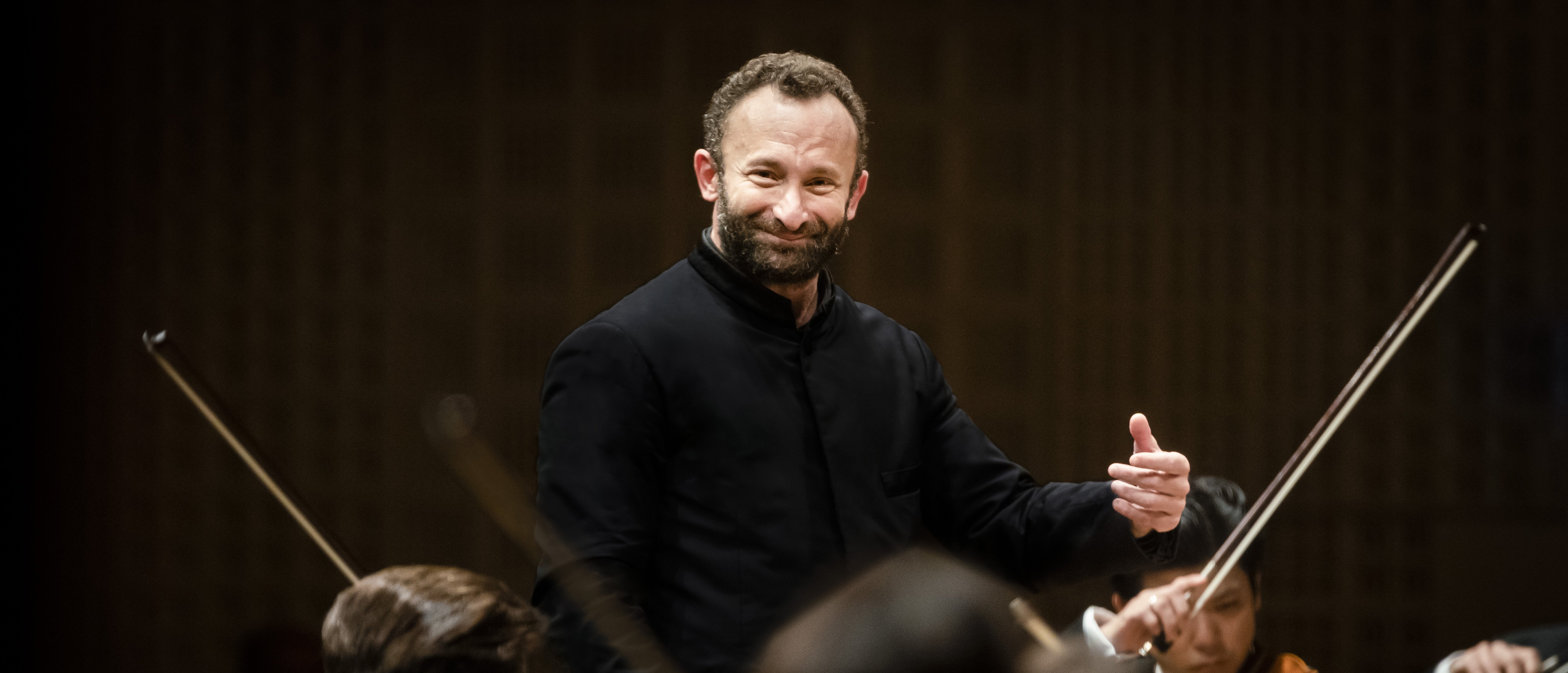Concert information
Info
Martha Argerich speaks of Daniil Trifonov with astonishment: “He has everything and more – tenderness, but also a demonic quality. I’ve never heard anything like it.” To round off the year, the star pianist performs Johannes Brahms’ monumentally virtuosic Piano Concerto No. 2 with the Berliner Philharmoniker and Kirill Petrenko. After the interval, the powerful and festive prelude from Richard Wagner’s opera Die Meistersinger von Nürnberg follows. The concert concludes with two lavishly-orchestrated dance works by Richard Strauss of a contrasting nature: the charming waltzes from Der Rosenkavalier and Salome’s Dance, with its exhibitionistic, almost brutal sensuality.
Artists
Berliner Philharmoniker
Kirill Petrenko conductor
Daniil Trifonov piano
Programme
Johannes Brahms
Concerto for Piano and Orchestra No. 2 in B flat major, op. 83
Berliner Philharmoniker, Kirill Petrenko conductor, Daniil Trifonov piano
Richard Wagner
Die Meistersinger von Nürnberg: Prelude to 1st Act (Concert Version)
Berliner Philharmoniker, Kirill Petrenko conductor
Richard Strauss
Der Rosenkavalier: Second Set of Waltzes (3rd Act)
Berliner Philharmoniker, Kirill Petrenko conductor
Richard Strauss
Salome, op. 54: Dance of the Seven Veils
Berliner Philharmoniker, Kirill Petrenko conductor
Johann Strauß jr.
Stürmisch in Lieb' und Tanz, op. 393

Main Auditorium
61 to 215 €
Introduction
19:15

Main Auditorium
61 to 215 €
Introduction
19:15

Main Auditorium
105 to 314 €
Introduction
16:45
A scherzo with a fatal conclusion
On the scandal that is “Salome”

Richard Strauss’ opera Salome bears a reputation for scandal (even today). No wonder, as it was censored at times and the soprano at the premiere initially refused to take part. Find out here what caused such an uproar in his time and how the work nevertheless became an acclaimed success.
11 Facts about the Viennese Waltz
A compact guide to the waltz for the concert interval
Biographies
Kirill Petrenko
Kirill Petrenko has been chief conductor and artistic director of the Berliner Philharmoniker since the 2019/20 season. Born in Omsk in Siberia, he received his training first in his home town and later in Austria. He established his conducting career in opera with positions at the Meininger Theater and the Komische Oper Berlin. From 2013 to 2020, Kirill Petrenko was general music director of Bayerische Staatsoper. He has also made guest appearances at the world’s leading opera houses, including Wiener Staatsoper, Covent Garden in London, the Opéra national in Paris, the Metropolitan Opera in New York and at the Bayreuth Festival. Moreover, he has conducted the major international symphony orchestras – in Vienna, Munich, Dresden, Paris, Amsterdam, London, Rome, Chicago, Cleveland and Israel. Since his debut in 2006, a variety of programmatic themes have emerged in his work together with the Berliner Philharmoniker. These include work on the orchestra’s core Classical-Romantic repertoire, for example with symphonies by Beethoven, Mendelssohn and Brahms. Unjustly forgotten composers such as Josef Suk and Erich Wolfgang Korngold are another of Kirill Petrenko’s interests. Russian works are also highlighted, with performances of Tchaikovsky’s operas Mazeppa, Iolanta and The Queen of Spades attracting particular attention recently.
Daniil Trifonov
Daniil Trifonov seeks orchestral sounds on the piano. Ever since he became acquainted with Alexander Scriabin’s large-scale, colourful work Le Poème de l'extase at the age of twelve, he has strived to achieve the same richness of sound on the piano. He is widely acclaimed for his expressive playing and technical accomplishment, but it is his fascination with the endless spectrum of tonal colours obtainable from the piano that has set him apart from his peers.
Born in Nizhny Novgorod in 1991, he studied in Moscow and Cleveland. In 2011, he won two prestigious competitions: the Tchaikovsky Competition in Moscow and the Rubinstein Piano Competition in Tel Aviv.
Daniil Trifonov has drawn attention not only for his unique playing, but also for his unconventional practice techniques; in order to acquire the necessary strength for his fortissimo outbursts, he trains underwater in the swimming pool or lying on the piano bench. “Everyone has to find a way to play in a relaxed and flexible way,” he said in an interview in 2016 on the occasion of his debut with the Berliner Philharmoniker, which, like today’s performance, took place as part of a New Year’s Eve concert. Since then, Trifonov and the orchestra have worked together regularly, which resulted in a residency for the 2018/19 season. The following season, Trifonov performed Beethoven’s Piano Concerto No. 3 for the first time under the baton of Kirill Petrenko.
Plan your visit
Opening hours, program booklets, dress code, introductions and more
How to get to the Philharmonie Berlin
Whether by bus, train, bike or car: Here you will find the quickest way to the Philharmonie Berlin - and where you can park there.
Ticket information
Advance booking dates, opening hours, seating plans, discounts



